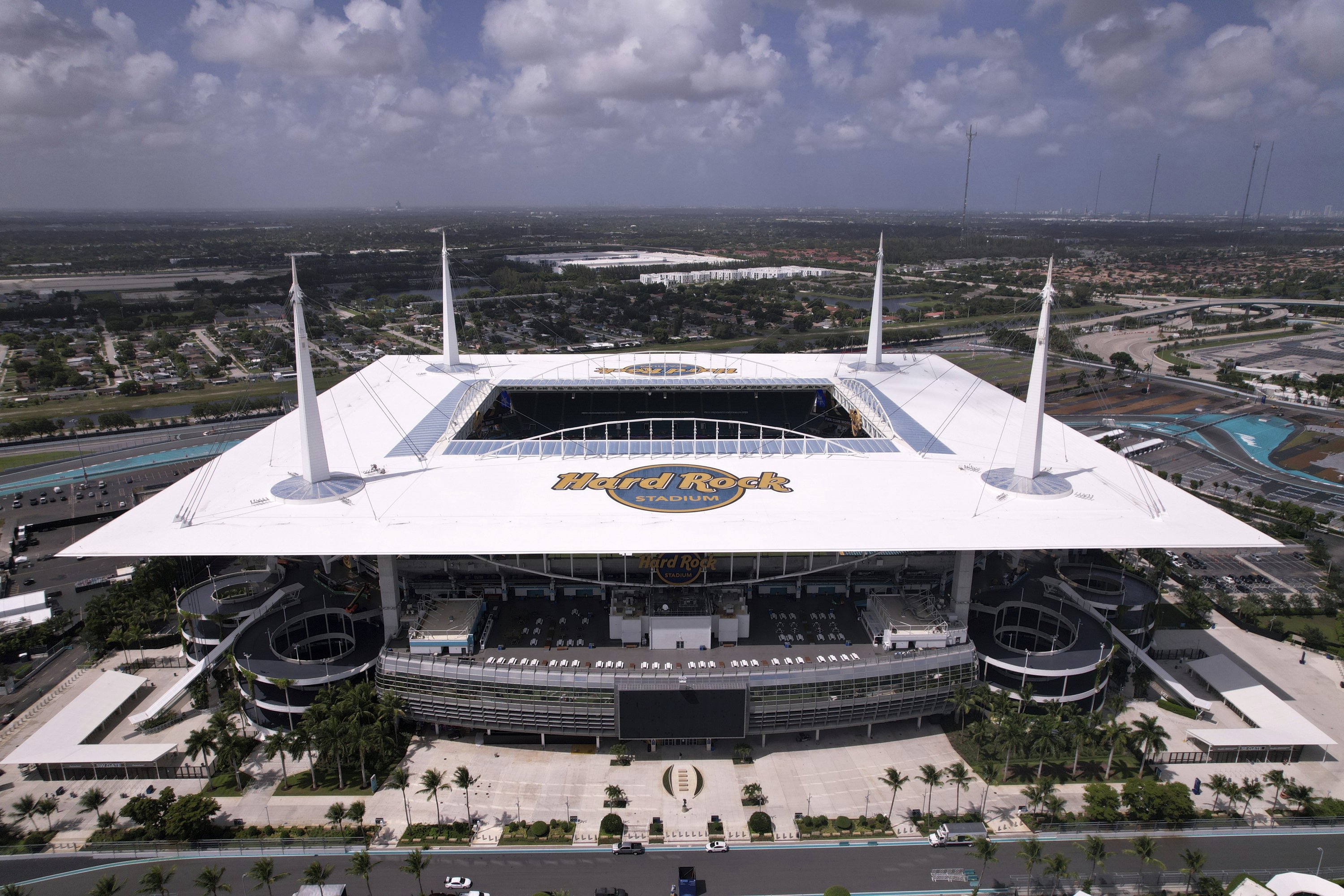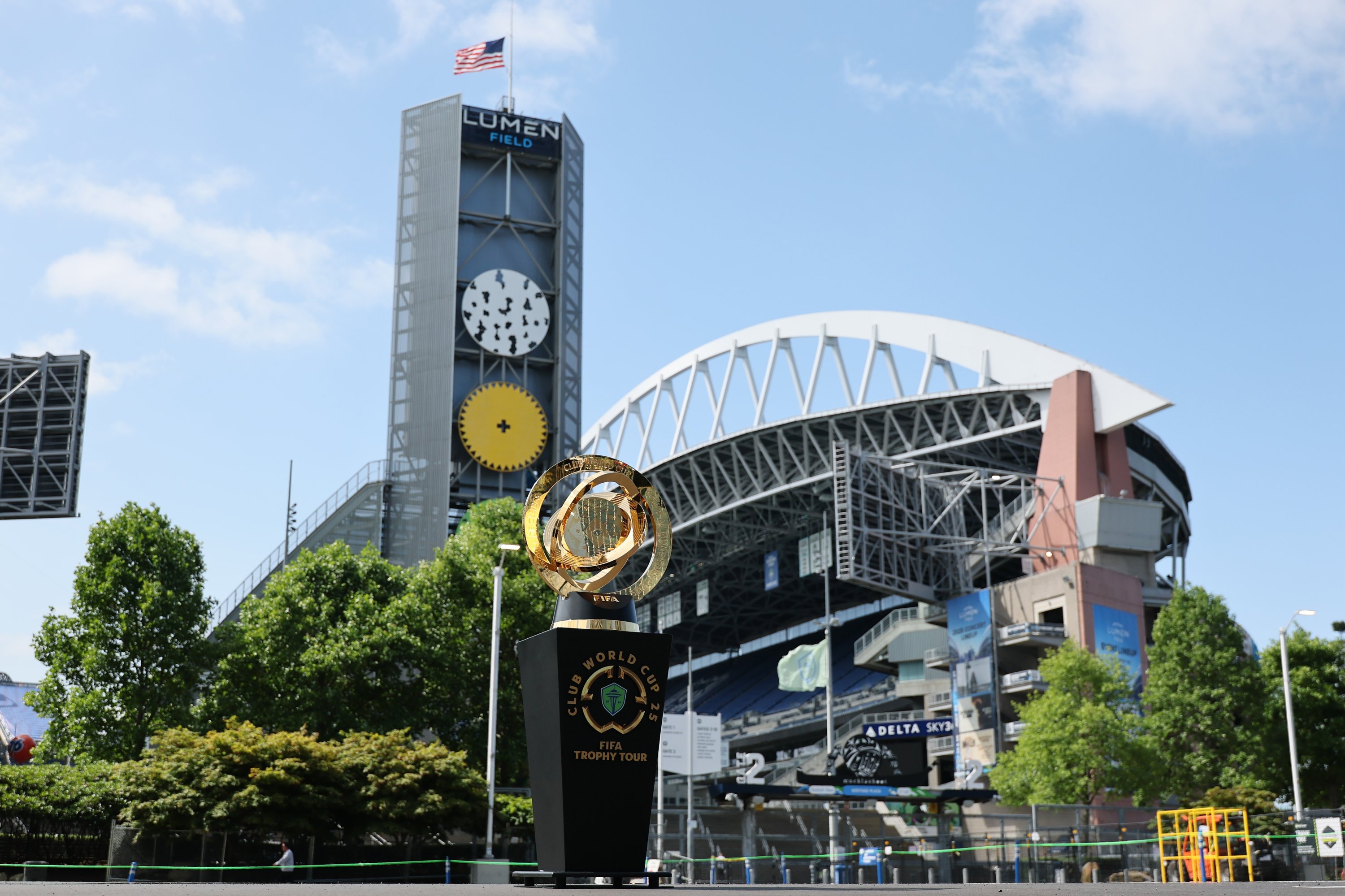Lionel Messi takes center stage again as Inter Miami face Egypt’s Al-Ahly in the opening match of FIFA’s newly expanded Club World Cup, launching a bold 32-team experiment designed to reshape global club football.
But while FIFA President Gianni Infantino touts the tournament as a “new era,” cracks beneath the glitter hint at a bumpy ride.
The tournament opens at Hard Rock Stadium and runs through July 13 with 63 matches sprawled across 11 U.S. cities, ending at MetLife Stadium in New Jersey.
Designed to mirror the prestige of the World Cup, the event brings together clubs from six continents – from Japan’s Urawa Red Diamonds to Brazil’s Fluminense – with Infantino framing it as a long-overdue global showcase.
“Think of legends like George Weah,” Infantino said. “He never played in a World Cup. This gives clubs and players from all corners of the world their shot.”
Billion-dollar bet
Backed by a $1 billion broadcasting deal with DAZN, FIFA has pledged free worldwide streaming – a rare offer in elite sports.
Over 130 countries have already secured tickets, with the U.S., Brazil, Argentina, Mexico and Canada leading the charge.
Fans from Europe and Asia, particularly France, Germany, Switzerland, Japan and Portugal, are also joining the frenzy.
Yet, that enthusiasm isn’t quite translating to ticket sales inside stadiums.
Shrinking hype
Despite early fanfare, empty stands loom large.
Ticket prices have nosedived: Inter Miami vs. Al Ahly seats once priced at $349 now go for under $80.
Dynamic pricing, meant to follow demand, has instead left fans fuming.
Some early buyers saw their seats moved without a clear explanation, with FIFA citing vague “stadium optimizations.”
Entire sections at Lumen Field and Lincoln Financial Field have been shut, though FIFA declined to confirm if sales were behind the decision.
Infantino brushed off criticism, blaming the fluctuations on the sport’s growing pains in the U.S. “We’ll have full stadiums,” he claimed. “Be part of history.”
Cramped schedule
For players, the Club World Cup is more burden than bonus.
Slotted into an already congested calendar, the tournament is pushing elite players, already fatigued from club and international duties, to their limits.
Messi, still active in MLS, faces sweltering Miami heat and tight turnarounds.
Top clubs like PSG, Bayern Munich and Manchester City arrive with squads battered from European campaigns.
Critics accuse FIFA of sacrificing player welfare for commercial gain. Infantino disagrees: “You can’t put a price on growing the game.”
With summer temperatures soaring above 90 degrees Fahrenheit (33 degrees Celsius) in some cities, and humidity draining legs fast, concerns mount over heat-related risks. FIFA has yet to confirm hydration breaks or additional safety measures.
Safety fears and the politics of play
Security will be under the microscope as Border Patrol and federal agencies coordinate with FIFA in the wake of recent unrest in U.S. cities.
The opening match follows last year’s Copa America final at Hard Rock, marred by fans breaching gates.

A now-deleted CBP post promised agents would be “suited and booted” at stadiums. FIFA insists it’s prepared.
“The most important thing is fan safety,” Infantino said. “We’re working with all necessary authorities.”
But the political undertone is hard to ignore. For international fans – especially from countries scrutinized by U.S. immigration policies – the atmosphere may feel tense.
Logistics, disconnects, cultural clashes
Eleven host cities across thousands of miles – from Seattle to Miami – make for a logistical headache. International fans face high travel costs and limited public transit options. Noon kickoffs and unfamiliar clubs aren’t helping.

American fans, more attuned to NFL rivalries than African or Asian clubs, might not flock to watch Urawa Red Diamonds or Al-Ahly.
Student ticket promotions and slashed prices aim to fill seats, but the struggle for atmosphere remains real.
Infantino dismissed the backlash with a smirk: “Too high, too low – FIFA gets criticized either way.”
Despite missteps, the Club World Cup still holds promise.
Young stars from Africa, Asia, and North America will share the field with global icons in what could become a new fixture in football’s calendar.
If FIFA can fix the potholes – ticketing, travel, safety, and scheduling – this could be more than a flash in the pan.
“This is football’s next chapter,” Infantino declared. “It begins now.”
Content Source: www.dailysabah.com

